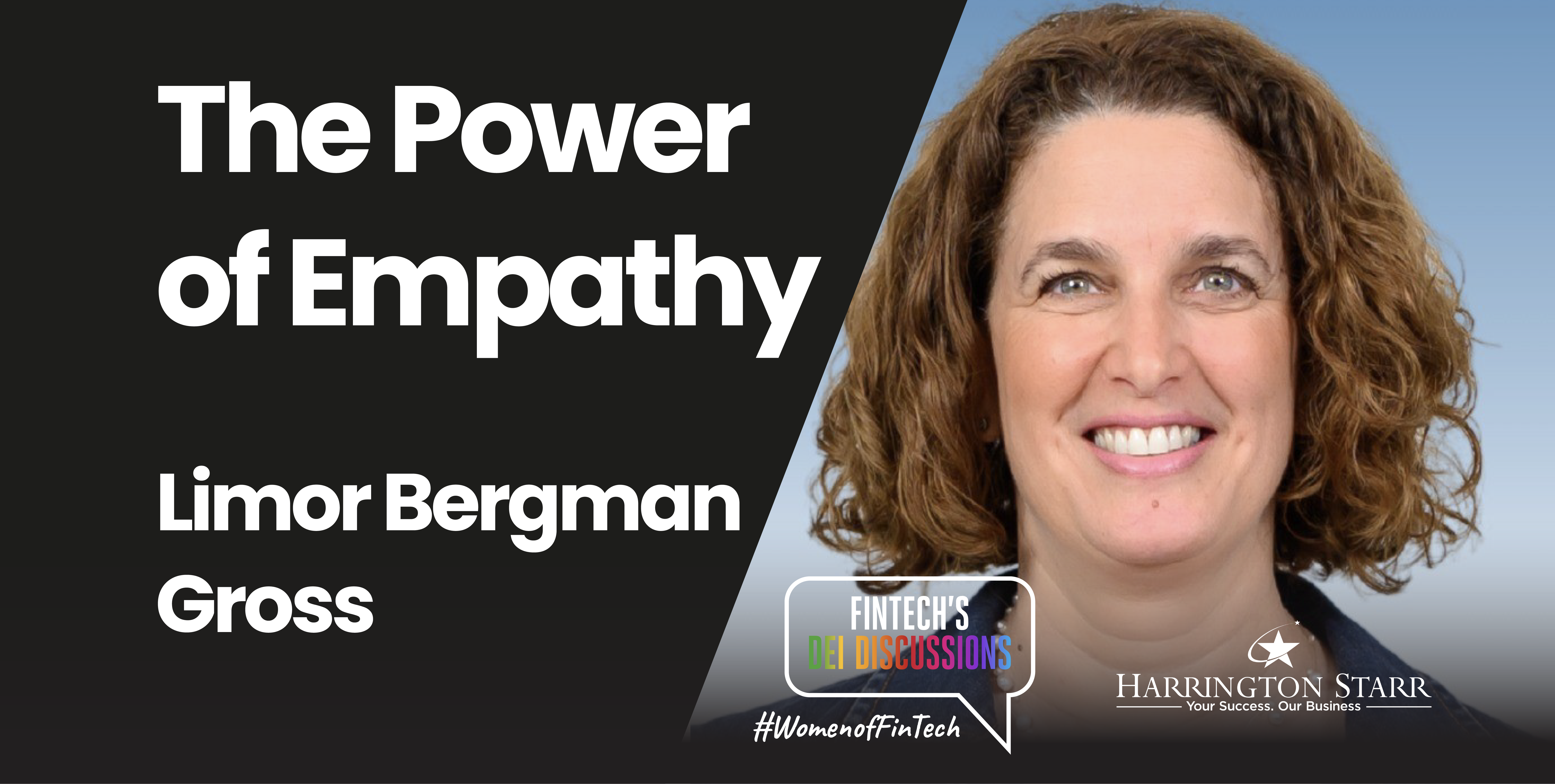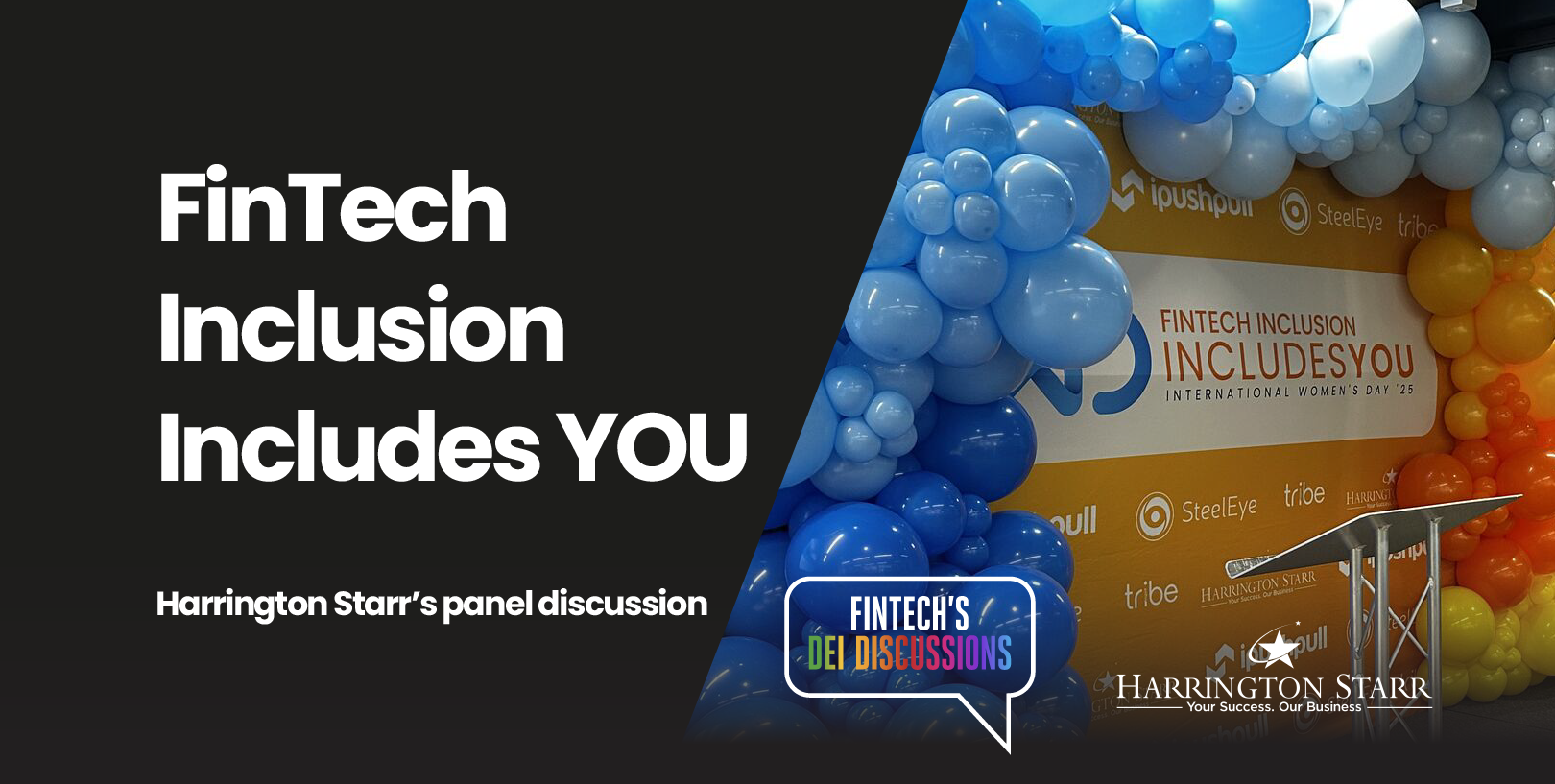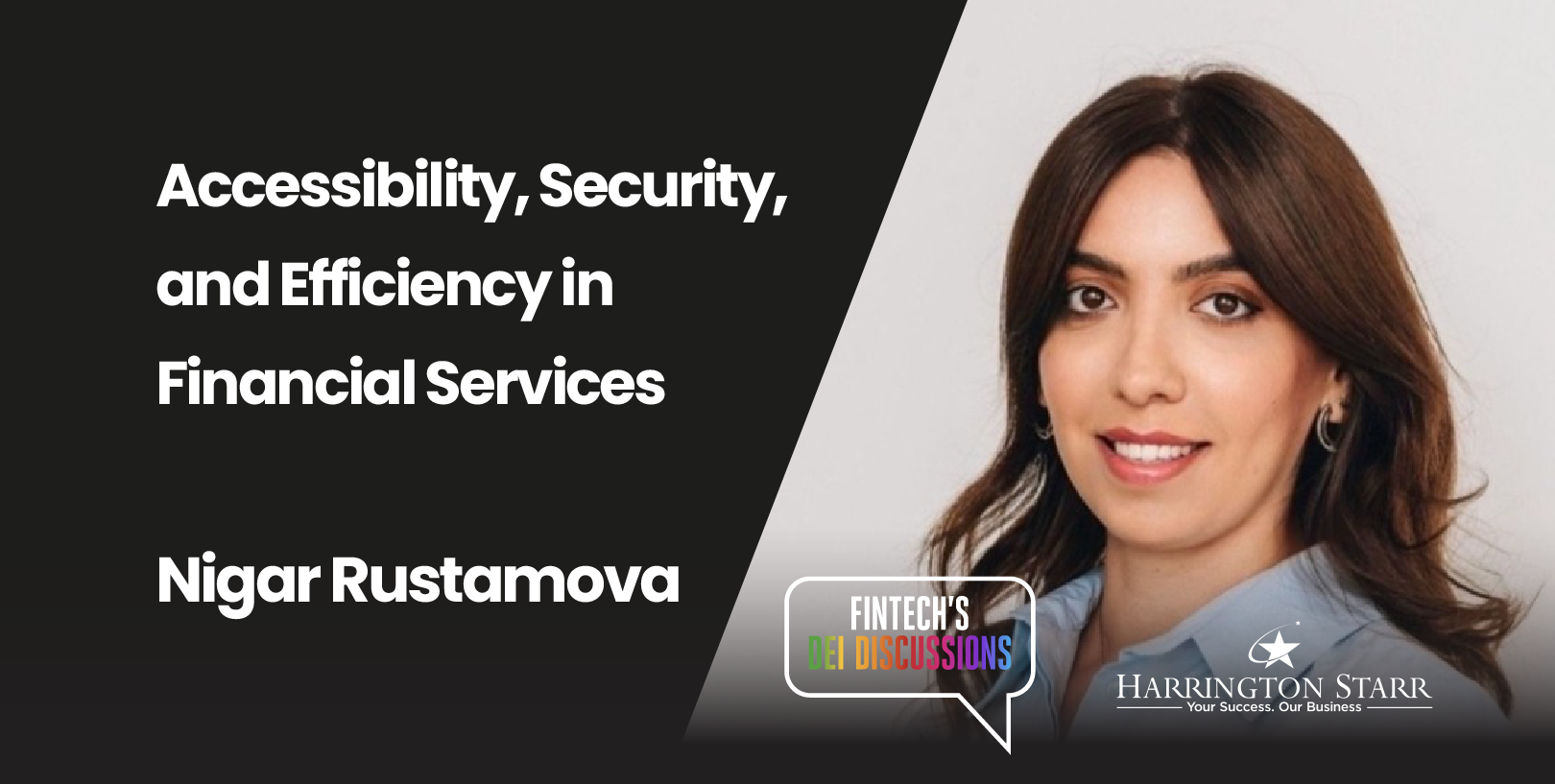
The ever-evolving fintech industry presents a unique set of challenges and opportunities, particularly in the realm of diversity, equity, and inclusion (DEI). In a recent episode of FinTech's DEI Discussions podcast, hosted by Nadia, Limor Bergman Gross—an executive coach and mentor—shared her journey, insights, and the work she’s doing to foster more inclusive workplaces in fintech. Her experiences shed light on the importance of emotional intelligence, mentorship, and the critical need for empathy in building successful and diverse fintech teams.
Limor’s Journey to Leadership in FinTech Careers
Limor Bergman Gross’s career began in a field where women are often underrepresented: software engineering. Over time, she discovered a passion for leadership and, despite the challenges she faced as a woman in tech, she pursued management roles. Her journey into leadership wasn’t straightforward. She recounted a pivotal moment when, while pregnant, she hesitated to apply for an engineering manager position, doubting whether she would be taken seriously. However, with the encouragement of a sponsor—a key figure in anyone's career, particularly in fintech—she secured the role.
This experience underscored the importance of having advocates in the workplace, especially in fintech careers where biases can often be a barrier. For those exploring fintech jobs, Limor’s story highlights the significance of persistence, the value of having mentors and sponsors, and the impact they can have on one's career trajectory. Fintech recruiters and recruitment agencies should take note of these dynamics when guiding candidates, particularly women, through their career paths.
The Role of Mentorship in Advancing FinTech Careers
Throughout her career, Limor noticed the lack of female representation in leadership roles, which motivated her to transition into mentoring other women. She found that many women, especially those in tech and fintech, often feel isolated or doubt their abilities. Limor's work as a mentor involves providing the support and encouragement these women need to overcome such challenges.
Mentorship, as Limor describes, goes beyond offering advice; it involves actively helping mentees build the confidence to pursue opportunities and navigate the complexities of their careers. This support is particularly crucial in fintech, an industry that is not only rapidly changing but also traditionally male-dominated. For #WomeninFinTech careers, having a mentor like Limor can make a significant difference, helping them break through barriers and advance to leadership positions.
FinTech recruiters and FinTech recruitment agencies can enhance their efforts by connecting female candidates with mentors, ensuring they have the support needed to thrive in their roles. This can be a vital strategy for improving retention and satisfaction among female fintech professionals.
Emotional Intelligence: Essential for Success in FinTech Jobs
In today’s fintech environment, where remote work and digital communication are the norms, emotional intelligence (EQ) has become a critical skill. Limor emphasised the importance of EQ in her discussion with Nadia, particularly when it comes to managing relationships and communications in a remote work setting.
As she explained, much of today’s workplace communication happens asynchronously, often through text-based platforms like Slack or Teams. This can lead to misunderstandings, making it crucial for professionals to practice empathy and curiosity rather than making quick judgments. For instance, it's easy to misinterpret a written message when you don’t know the sender personally or understand their communication style.
EQ involves recognising and managing one’s own emotions, understanding the emotions of others, and using this awareness to guide interactions effectively. In fintech jobs, where teamwork and collaboration are essential, the ability to communicate effectively and resolve conflicts can greatly enhance team dynamics and overall productivity.
For fintech recruiters, identifying candidates who possess strong EQ can be just as important as finding those with technical skills. Such individuals are likely to contribute positively to the workplace culture, helping to foster an environment where all employees feel valued and understood.
Building Inclusive Workplaces in FinTech
One of the most significant challenges in FinTech recruitment is creating workplaces that are not only diverse but also genuinely inclusive. Limor discussed the common misconception that diversity is achieved simply by hiring a diverse workforce. In reality, inclusion requires much more effort and intentionality.
An inclusive workplace is one where every employee feels valued and respected, regardless of their background. It’s not just about checking a box by hiring people from diverse demographics; it’s about creating a culture where everyone’s voice is heard and appreciated. Limor emphasised that inclusiveness involves recognising and embracing differences—not just in appearance, but in thought, experience, and perspective.
In fintech, where innovation is key, a diverse range of perspectives can lead to more creative and effective solutions. However, this diversity of thought can only be harnessed in an environment that actively promotes inclusivity. This means fintech companies need to go beyond recruitment and focus on building a culture where diverse ideas and approaches are welcomed and nurtured.
For fintech recruiters, this involves advocating for hiring practices that prioritise both diversity and inclusion. It also means working with companies to ensure that once diverse candidates are hired, they have the support and resources they need to succeed and feel included.
The Cornerstone of an Inclusive FinTech Workplace
At the heart of creating an inclusive workplace, according to Limor, is empathy. She believes that empathy is the key to overcoming the biases and judgments that often arise in professional settings. By fostering empathy, individuals and teams can better understand and appreciate each other's perspectives, leading to a more harmonious and productive work environment.
Limor advises professionals to start by practicing empathy with themselves. She suggests that self-awareness and self-compassion are the first steps toward extending the same understanding and kindness to others. In her coaching, she often uses exercises like the Johari Window, a tool that helps individuals explore the differences between how they see themselves and how others see them. This process can help teams build mutual understanding and respect, which are essential for inclusivity.
For those in fintech recruitment, promoting empathy as a core value can help attract and retain employees who are not only technically proficient but also capable of contributing to a positive and inclusive workplace culture. This, in turn, can lead to stronger team cohesion and better business outcomes.
Inclusivity as a Competitive Advantage
As the fintech industry continues to grow and evolve, the competition for top talent will only intensify. Companies that prioritise inclusivity and create environments where all employees can thrive will have a distinct advantage in attracting and retaining the best talent.
Limor’s work as a coach and mentor offers valuable insights into how this can be achieved. By focusing on emotional intelligence, mentorship, and empathy, fintech professionals and organisations can build more inclusive and supportive workplaces. These qualities are not just beneficial for employees; they also contribute to the overall success and innovation of the company.
For fintech recruitment agencies, this means going beyond traditional hiring practices and advocating for a more holistic approach to talent management. By recognising and nurturing the full range of qualities that candidates bring to the table, agencies can help shape the future of the fintech industry in a way that is both inclusive and forward-thinking.
#WalkingtheTalk in FinTech Recruitment
Limor Bergman Gross’s insights from the podcast serve as a powerful reminder of the importance of inclusivity, emotional intelligence, and mentorship in fintech careers. For those involved in fintech recruitment, these themes should serve as guiding principles in the search for talent and the development of organisational cultures.
By embracing these values, the fintech industry can not only attract and retain top talent but also drive innovation and success in an increasingly competitive market. Fintech recruiters and recruitment agencies have a critical role to play in this evolution, ensuring that the industry becomes more equitable, resilient, and dynamic.





